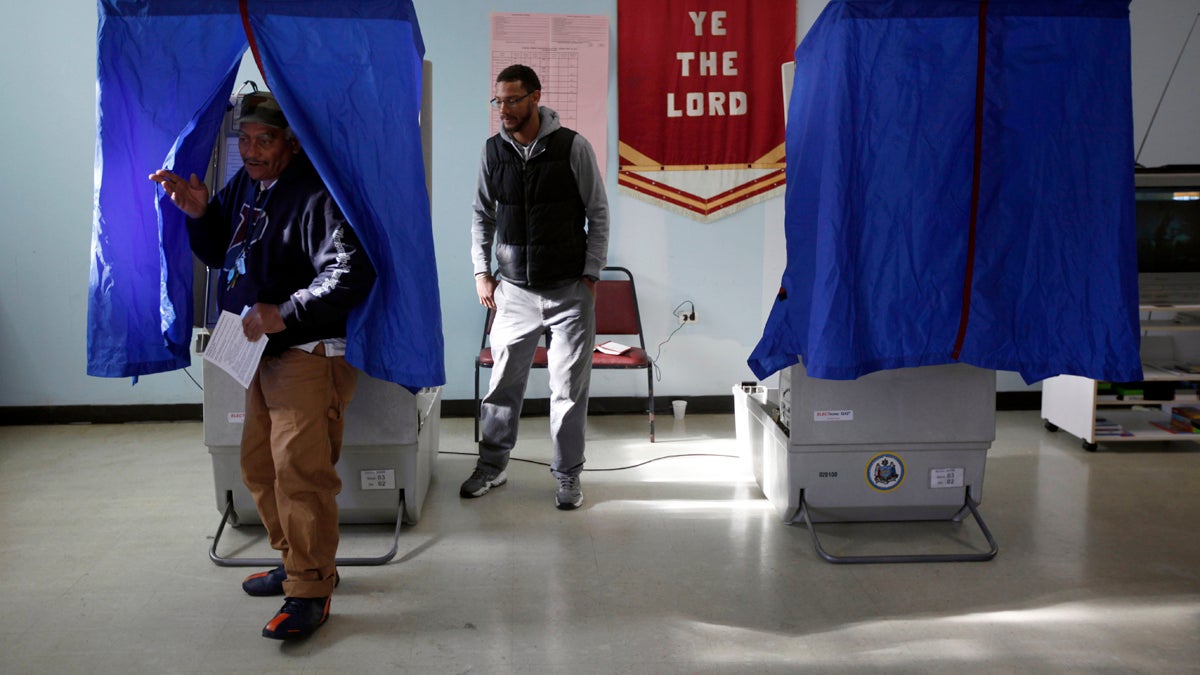Auditor General roadshow: nonprofits, tax exemption and the state constitution

Pennsylvania voters could be asked to weigh in on a possible referendum on whether to change the state's constitution so lawmakers have more control over defining which organizations are purely public charities. (AP Photo/Matt Rourke)
Voters could be asked this fall to give state lawmakers more power. And they’ll have the chance to learn more about what that might mean through a series of public meetings.
The topic: a possible referendum on whether to change the Commonwealth’s constitution so state lawmakers have more control over defining which organizations are purely public charities.
That’s important because, to offset the unprofitable nature of the beneficial, charities don’t pay real estate taxes. This shifts the burden on residents and non-exempt businesses to pay for public services.
State Auditor General Eugene DePasquale’s office is hosting a series of hearings where the public can give feedback and ask questions. Requests to speak and written testimony can be sent to news@auditorgen.state.pa.us.
Four sessions are scheduled:
• Pittsburgh: Noon – 2 p.m., Thursday, March 12, In the Gold Room on the Fourth Floor of 431 Grant St.• Scranton: 1 – 3 p.m., Thursday, March 19, at City Hall, 340 N. Washington Ave., in Council Chambers. • Philadelphia: 1 – 3 p.m., Wednesday, March 25 at City Hall, Broad and Market streets, in Council Chambers.• Harrisburg: 1 – 3 p.m., Tuesday, March 31, in Room 8-EA, East Wing of the Capitol.
To be clear: the voter referendum would simply give the state legislature more authority. We don’t know what, exactly, they will do with it.
Some officials fear the result will be broadened criteria at the behest of lobbyists, more exemptions and worse related revenue problems for cities.
Less than half the tax base already shoulders the entire public service cost burden in some places. Exempt entities sometimes pay at least part of what they’d owe – but that’s the exception, not the rule. Which means more exempt properties in a community and the higher their share of the collective assessed property value, the heavier the burden on taxpayers and weaker the ability to generate revenue to support local public services.
Some legal experts meanwhile testified a few weeks ago that the change seems relatively pointless. The legislature already has a hand in regulating this issue, through Act 155 of 1933, also called the General County Assessment Law, pointed out law professor Nicholas Cafardi.
Lawmakers amended the statute two years ago to essentially codify the state Supreme Court decision that laid out a five-part list for figuring out whether an organization ought to be considered charitable.
WHYY is your source for fact-based, in-depth journalism and information. As a nonprofit organization, we rely on financial support from readers like you. Please give today.



